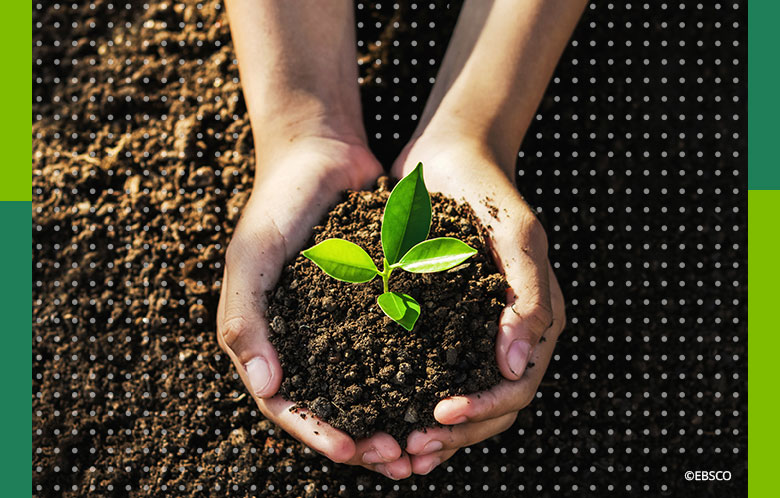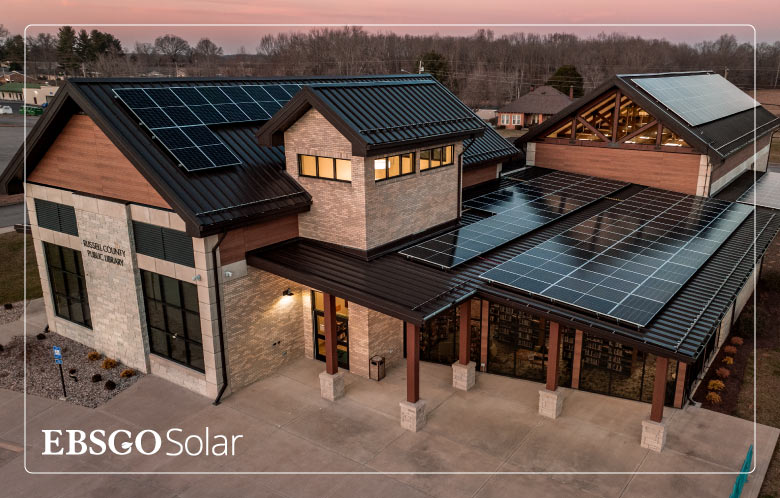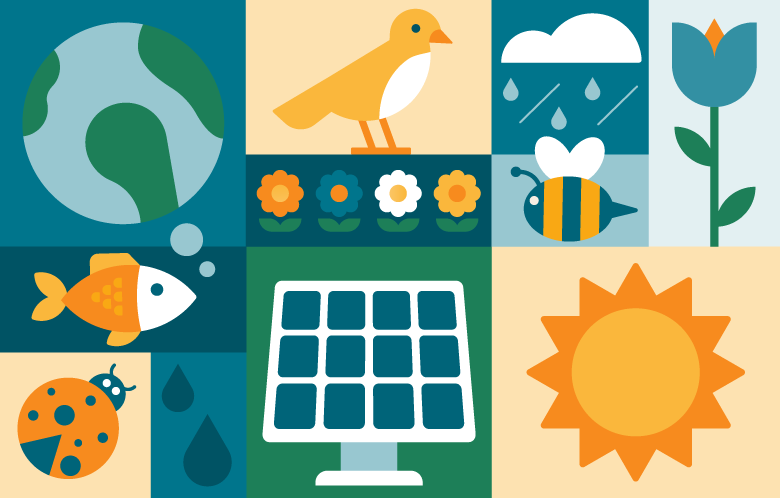Earth Day is celebrated across the globe on April 22. In celebration of this important day, there are many ways libraries can inspire citizens to make changes in their lifestyles and habits to lessen their environmental footprints. EBSCO offers a variety of products, programs and partnerships to help libraries that are interested in educating their audiences about the environment or furthering a commitment to “going green.”
EBSCO Solar Grant
EBSCO Solar is an EBSCO-sponsored program providing $300,000 in grants to pay for solar installations. As part of EBSCO’s continuing partnership with libraries across the world, we want to make it easier for libraries to fund solar projects and do their part to help the environment. Go to www.ebsco.com/solar for more information.
Research Databases Covering all Aspects of Human Impact to the Environment
For libraries looking to increase their amount of scholarly content about global warming, green building, pollution, sustainable agriculture, renewable energy, recycling and more, the free research database GreenFILE is a great solution. It includes indexing and abstracts for more than 1,300.000 records and full text for more than 15,800 open access records. Researchers can access GreenFILE at www.greeninfoonline.com and EBSCO customers can add the database to their profile by visiting EBSCO Connect.
Also available is Environment Complete, a full-text database for environmental studies, providing more than 830 active full-text journals covering ecosystem ecology, energy, environmental policy, sustainability and other related subjects.
Promote the Use of Digital Resources and Connect Readers to Available Content
The health crisis experienced across the globe over the last few years has made your library’s digital collection an invaluable asset to your community. Take this opportunity to promote e-books and digital magazines that educate readers about important issues such as climate change, vanishing species, overflowing landfills, air pollution, rain forest, water pollution, energy depletion and more. EBSCO publishing partners such as Simon & Schuster, Penguin Random House and Dorling Kindersley offer thousands of digital reading options as well as free posters, guides and promotional tools to help your library get the right resources in front of the right audience. Here are a few lists and resources to check out:
Penguin Random House:
Dorling Kindersley (A Division of Penguin Random House)
EBSCO:
- Digital Reading Picks for Earth Day Poster (post on your library’s website!)
Looking to acquire more digital content? EBSCO offers more than 2,400,000 e-books from thousands of publishers, including 450,000+ DRM-free titles. We also offer libraries access to more than 1,200 digital magazines via Flipster.
Resources to Support School Curriculum
Libraries subscribing to Science Reference Source on Explora have access to high-quality reference e-books and magazines that can support classroom activities and assignments related to Earth Day. Students can look for relevant articles by typing “SU Earth Day” in the search box or simply browsing topics by category. Students and educators can also browse the Earth Sciences and Environmental Science categories to find information on weather and climate, global warming, biodiversity, endangered species, forests, oceans, pollution, renewable energy and many other topics. Search results include articles from magazines such as Discover, Astronomy, New Scientist, Earth Island Journal, Ranger Rick, Sierra and more. Educators can use the Lexile Range filter to find age-appropriate articles, as well as lesson plans on environmental issues and science experiments to conduct in class or at home. The database also includes infographics for more than 60 U.S. National Parks and thousands of stunning images of nature and wildlife. Download our free citizen science lessons and activities to use with Science Reference Source.
For students crafting Earth Day-themed persuasive essays and speeches, Points of View Reference Source offers overview, point and counterpoint articles for 55 topics related to earth and the environment, animal welfare, and energy and conservation. Each topic also includes a Guide to Critical Analysis which helps students evaluate the controversy and enhances their ability to read critically, develop their own perspective on the issues, and write or debate an effective argument on the topic. This Recipe for Research guides students through the process of acquiring and organizing information in preparation for writing a paper.
Leading by Example
EBSCO is proud to be a “green” company, making decisions designed to reduce our environmental footprint including three separate photovoltaic solar arrays on buildings at our Ipswich, Massachusetts campus. These arrays offset the amount of brown power we use. EBSCO also added the first commercial-grade charging stations for electric cars in the town of Ipswich. Other efforts that are paying off include: extensive waste reduction and donation programs, support for SolarSPELL which helps schools in developing countries access educational resources via solar-powered WiFi, and a commitment to achieving carbon neutrality.



